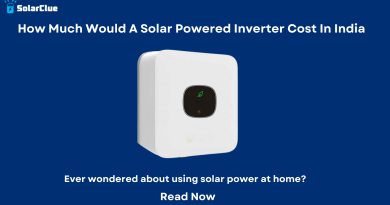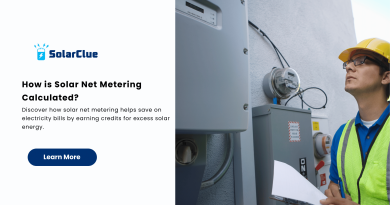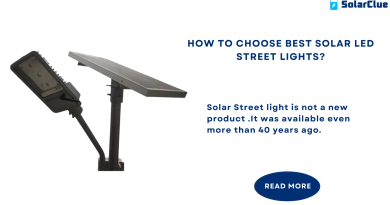Is Solar Panels Worth It?
Solar panels have become an increasingly attractive option for homeowners and businesses seeking to reduce their carbon footprint and potentially lower energy costs. With advancements in technology and government incentives, the appeal of solar power has grown significantly. But is it truly a worthwhile investment?
Evaluating the ROI of solar panels is crucial for making informed investment decisions. This blog covers the factors affecting costs and savings, payback periods, government incentives, and tips for maximizing ROI.
Table of Contents
- 1 Calculating the Cost of a Solar Panel System
- 1.1 Estimating Potential Energy Savings
- 1.1.1 Considering the Impact of Government Incentives
- 1.1.2 Evaluating the Long-term Financial Benefits of Solar Power
- 1.1.3 Comparing Solar Power to Grid Electricity Costs
- 1.1.4 Factors Influencing the ROI of Solar Panels
- 1.1.5 Tips for Optimizing Solar System Performance to Increase ROI
- 1.1.6 The Role of Battery Storage in Improving ROI
- 1.2 ROI Analysis for a 5kW Solar System
- 1.3 FAQs
- 1.1 Estimating Potential Energy Savings
Calculating the Cost of a Solar Panel System
System Size: Determining the number of panels and total capacity (kW).
Panel Efficiency: Impact on the number of panels needed.
Installation Costs: Labor, permits, and additional components.
Maintenance Costs: Regular cleaning, inspections, and potential repairs.
Estimating Potential Energy Savings
Electricity Rates: Current and projected rates.
Energy Production: Calculating expected energy output (kWh).
Energy Consumption: Matching system size to household energy needs.
Net Metering: Credits for excess energy sent back to the grid.
Considering the Impact of Government Incentives
- Federal and State Incentives: Tax credits, rebates, and grants.
- Example Programs: MNRE subsidies, state-specific schemes.
- Impact on ROI: Reducing upfront costs and enhancing savings.
Evaluating the Long-term Financial Benefits of Solar Power
- Energy Independence: Reducing reliance on grid electricity.
- Increased Property Value: Adding value to your home.
- Environmental Benefits: Reducing carbon footprint.
Comparing Solar Power to Grid Electricity Costs
- Current Grid Electricity Costs: Analysis of rates and annual increases.
- Cost Comparison: Solar power vs. traditional electricity over 20-30 years.
- Break-even Analysis: When solar costs match grid costs.
Factors Influencing the ROI of Solar Panels
- Location: Solar irradiance and climate conditions.
- System Efficiency: Quality of panels and installation.
- Energy Consumption Patterns: Usage during peak solar production.
- Maintenance and Durability: Longevity and reliability of the system.
Tips for Optimizing Solar System Performance to Increase ROI
- Regular Maintenance: Ensuring panels are clean and functioning properly.
- Monitoring Systems: Tracking performance and addressing issues promptly.
- Energy Efficiency Measures: Reducing overall consumption to maximize solar usage.
- Optimal Panel Placement: Correct orientation and tilt for maximum sunlight.
The Role of Battery Storage in Improving ROI
- Energy Storage Benefits: Storing excess energy for use during non-sunlight hours.
- Cost of Batteries: Initial investment and lifespan considerations.
- Increased Savings: Reducing dependence on grid power and enhancing energy independence.
ROI Analysis for a 5kW Solar System
| Parameter | Value |
|---|---|
| System Cost (₹) | ₹2,50,000 |
| Federal Subsidy (₹) | ₹50,000 |
| State Rebate (₹) | ₹20,000 |
| Net System Cost (₹) | ₹1,80,000 |
| Annual Energy Production (kWh) | 7,500 kWh |
| Electricity Rate (₹/kWh) | ₹6 |
| Annual Savings (₹) | ₹45,000 |
| Payback Period (years) | 4 years |
| ROI after 10 years (%) | 150% |
| ROI after 20 years (%) | 400% |
Conclusion
Evaluating the ROI of solar panels involves understanding the costs, potential savings, payback periods, and long-term financial benefits. By considering government incentives, comparing solar power to traditional electricity sources, and implementing optimization strategies, homeowners can make informed decisions and maximize their investment in solar energy.
Here at SolarClue®, we offer a smart, practical, and “beautiful” solution. You will be answered for all the questions related to Solar.
We provide all kinds of brands that are the Best Solar panels in India.
If you are the one who is planning for the solar power system. Don’t hesitate to contact our team!
Looking forward to empowering you with solar energy, just like hundreds of our other clients!
FAQs
1. How do I calculate the payback period for a solar panel system?
Divide the net system cost by the annual savings to determine the payback period.
2. What factors influence the ROI of solar panels?
Factors include system size, panel efficiency, installation costs, government incentives, and electricity rates.
3. How can government incentives impact the ROI of solar panels?
Incentives reduce the initial investment, enhancing savings and improving the ROI.
4. What are the long-term financial benefits of solar power?
Benefits include energy independence, increased property value, and reduced electricity bills.
5. How can I optimize the performance of my solar system to increase ROI?
Regular maintenance, monitoring systems, energy efficiency measures, and optimal panel placement can help maximize ROI.




